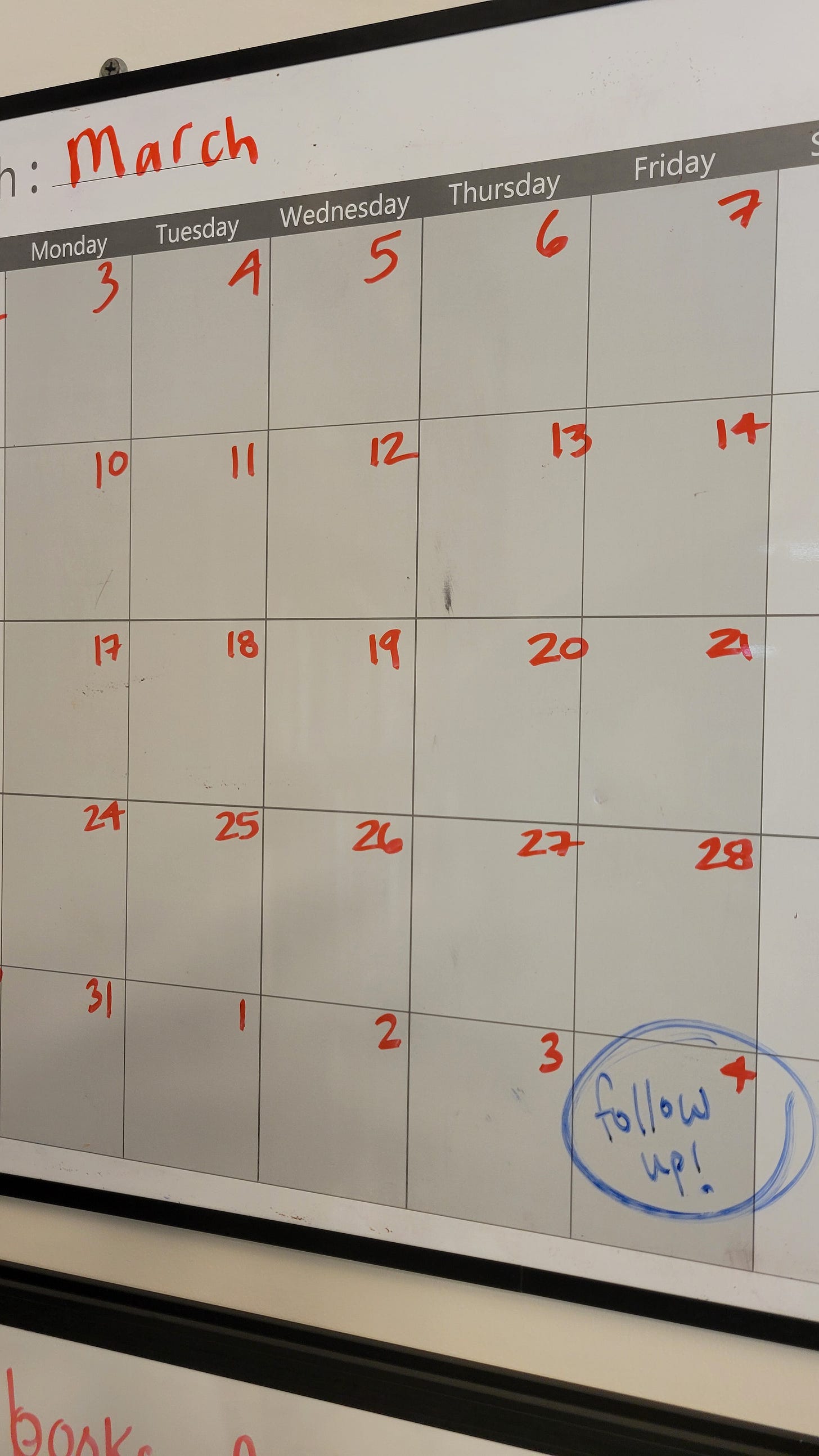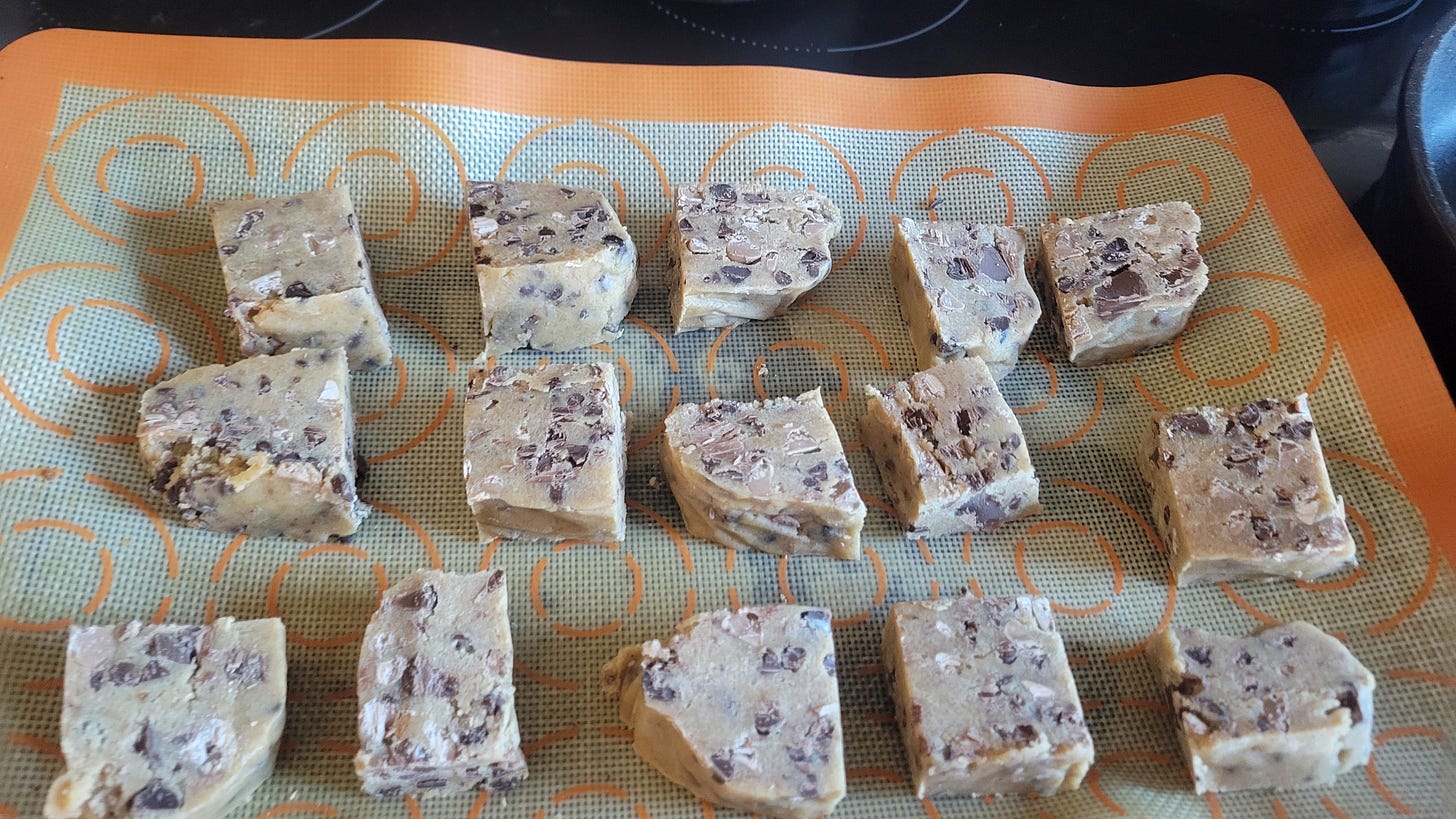If you’re new around here, let me introduce what I’ve been up to with Amanda Wettersten lately. We just wrapped up an 8-week series called #GoFirst.
It’s basically a series of micro-challenges where we help each other deepen and broaden our connections with the people around us.
I prefer the term “connectedness” to “connections,” even though I sometimes use both. Here’s why:
Connectedness sounds more like neuroplasticity. That’s a GIANT word that just means our brain wiring can expand, grow and change over time.
One of the most significant takeaways I’ve had since we started the Go First Challenge is that many of these small habits and movements toward staying connected to others have become somewhat of a regular rhythm in my life.
No, it didn’t happen overnight — or even in just 8 weeks.
Many of these small challenges we recommended are things Amanda and I are already doing in our everyday lives, her in Illinois and me in Georgia.
But what I’m noticing is that it’s ingrained in me—this heart to welcome someone who seems a little on the fringe. Maybe the person in line in front of me at Walmart has just used their last dollar, and they’re asking the cashier to put stuff back. (Been there!)
So, how can I encourage connectedness when I witness moments like that? They don’t actually involve me, but should I/how can I involve myself just enough to move the needle in that person’s life?
Connectedness is something we can expand upon, and over time, our brains don’t have to work as hard at paying attention to those around us.
Moving the Needle
During our last week of the challenge, I recognized that asking for help was not something I perceived as a weakness. In fact, I probably ask for help two or three times a week without even thinking about it.
This week, I asked for help when I was walking my son through the steps of baking his first cake. (We’re a little behind on teaching life skills here.)
I realized as we were on the final step before putting the batter in the oven that we only had one stick of butter and needed two. This at 8 p.m. on a school night. Running to Kroger wasn’t on my list of priorities.
So I texted a neighbor, and she came to my rescue.
What ways can you ask for help this week? And what ways can you help pay attention to those around you, whether you know them deeply or have only just met?
These are what make the difference between lifestyle changes and 8-week challenges. When we start to pay attention more as a rhythm, we automatically get pulled into deeper and broader connectedness.
Our attentiveness in the fray wins our connectedness battle every time.
What Next?
So, what comes next? How do we transition from a challenge that was scripted and organized into messy, chaotic life that lacks rhythms even on the best days?
I have a few ideas.
Start small. Or start over. Maybe you ran into snags while you were following our challenge. Here’s where you can catch a rundown of all eight weeks. Pick something and start over.
Think about the experience that has had the greatest impact on your view of your own life. Was one encounter the most meaningful? Dig deeper and ask why. Why did your meetup-turned-playdate almost bring you to tears on the way home? Why did that friendly smile back from the cashier at your local farmer’s market add pep where your step was tired and slow? As you reflect on your experiences, even if it was just one, asking what left an impression on you is a good start. But asking why it left such an impression helps you dig deeper.
Complete the poll I sent out a week or so ago, so I can tailor content directly to you.
Circle a date on your calendar. Add something like “check in on XXYYAABB” (fill in the name of someone you want to follow up with) and then when that calendar reminder pops up, do it. It’s a small way you can keep the spirit of welcome alive in your busy lifestyle.
Look for the good. Most of all, Amanda and I try to pay attention to what’s around us and fix our eyes on good things. Maybe it’s a good recipe someone shared with you or a good chat you had unexpectedly with a neighbor while you were out walking the dog. Focusing on small, paying attention to local, and fixing your gaze on positive things… are the ways we transform so that “welcome” becomes a lifestyle.
When in doubt, make cookies. I made this recipe recently and happened to have some dough left in my freezer when I unexpectedly met new neighbors who were moving in at the end of my block. Guess what they got later that afternoon? These cookies! Keep some dough in your freezer; you’ll always have something quick and easy to give to a friend or new-to-you friend.
Welcome, Writers & Non-Writers
One way I like to be a welcoming place for fellow writers is by promoting new work, sharing how I support writers through my editing and ghostwriting services, and giving away free tips throughout the year to make revisions more doable and writing more accessible to the journaler-turned-writer or the professional writer (or somewhere in between).
If you’d like access to my writerly tips, tricks and services, I highly recommend subscribing to my newsletter. You can find it at brooketurbyfill.substack.com or in my Instagram profile.
I’ve been working on some resources just for you, but I also enjoy helping writers who want to break into getting paid to do what they love. Reach out to me at brooke@turbowordsediting.com if you have any writing, editing or publishing questions. If you’re stuck, I’d love to know where. What is your greatest need as a writer?
Here’s that poll. (Scroll to the bottom.) Thanks for completing it!
And if you’re not a writer? I’d love to hear feedback from you too. Please just answer the one poll question so I can see what you’re looking for and create content — video and written — that appeals to you.





